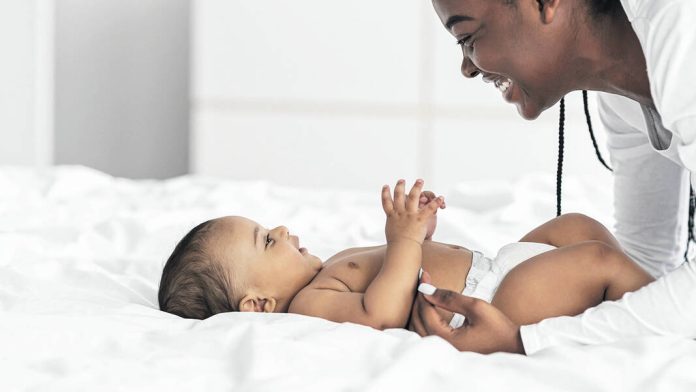Every day, we all use many personal care products such as soaps, lotion, hair products and toothpaste. Some of these products can contain chemicals such as phthalates, which have been linked to health effects, such as interfering with the hormone system.
While safer options are becoming more available on store shelves, stronger federal policies are needed to ensure all personal care products are safe and accessible.
For families seeking tips on how to choose safer personal care products, here are some tips to consider:
Hand soap and body wash
Avoid “antibacterial soaps” such as those with triclosan. Plain soap and water works well to prevent the spread of germs.
If soap and water are not available, use an alcohol-based hand sanitizer to kill germs. Be sure to read the directions and store them out of the reach of your children.
Choose fragrance-free body washes or bar soaps with a few simple ingredients.
Lotion and body care
Choose fragrance-free lotions, since phthalates are often a component of “fragrance” or “parfum” in these products.
Products labeled as “antiperspirant” typically contain aluminum and work by blocking sweat glands. Deodorants do not prevent sweating like antiperspirants do but can help mask odor and soak up moisture. For those wishing to avoid aluminum, consider a deodorant with ingredients such as baking soda or cornstarch.
Hair care
Avoid chemical-based straightening treatments, as they can contain harmful chemicals like formaldehyde or sodium hydroxide (lye).
Keep hairspray out of the reach of children and use it in a well-ventilated area.
Choose shampoos and conditioners that do not contain phthalates or parabens (check the label to be sure).
Try homemade recipes using common household ingredients such as olive oil for deep conditioning of textured hair.
Diaper products
Use fragrance-free baby wipes or plain water.
To prevent diaper rash, change diapers frequently, clean skin gently and use a fragrance-free diaper cream (such as zinc oxide-based products).
Avoid use of talcum powder, as it can cause lung damage if inhaled. Some talc has also been found to contain small amounts of asbestos.
Cosmetics
Be cautious with certain imported cosmetics, which can contain lead or other heavy metals. Some examples of potentially hazardous imported cosmetics are kohl, kajal, surma and sindoor.
Nail polish can contain chemicals of concern such as formaldehyde and toluene. Some nail polish brands have created nail polish options without some of the most concerning chemicals; these are typically labeled as “5-free”, “7-free” or “9-free” (depending on the number of chemicals they have left out of the formula).
Oral care products
Avoid toothpaste with triclosan. Fluoride toothpaste is recommended, but start with a small rice-sized smear for infants.
Avoid use of topical benzocaine to relieve teething pain in babies. Safer alternatives include a cold washcloth or massaging the gums with a clean finger.
Store mouthwash out of the reach of children, as some ingredients can be toxic to children if they ingest it. Children should not use mouthwash until age 6, when they are able to swish and spit.
But promote early dental health — start young to prevent cavities and tooth decay.
Children with nut or seed allergies
Some lotions, body washes and hair products may contain nut-based oils (almond oil, for example). If your child has a nut or seed allergy, it is best to avoid these products. Be cautious when reading labels, however, since some nut-based oils do not appear with their common name; for example, peanut oil may appear as “arachis oil.” Talk to your pediatrician or allergist for more information.







